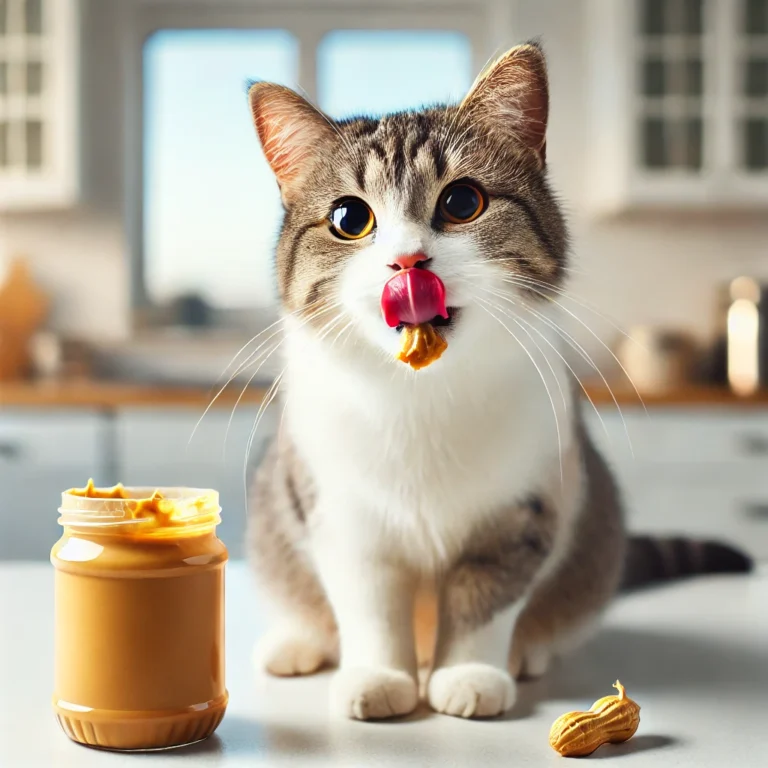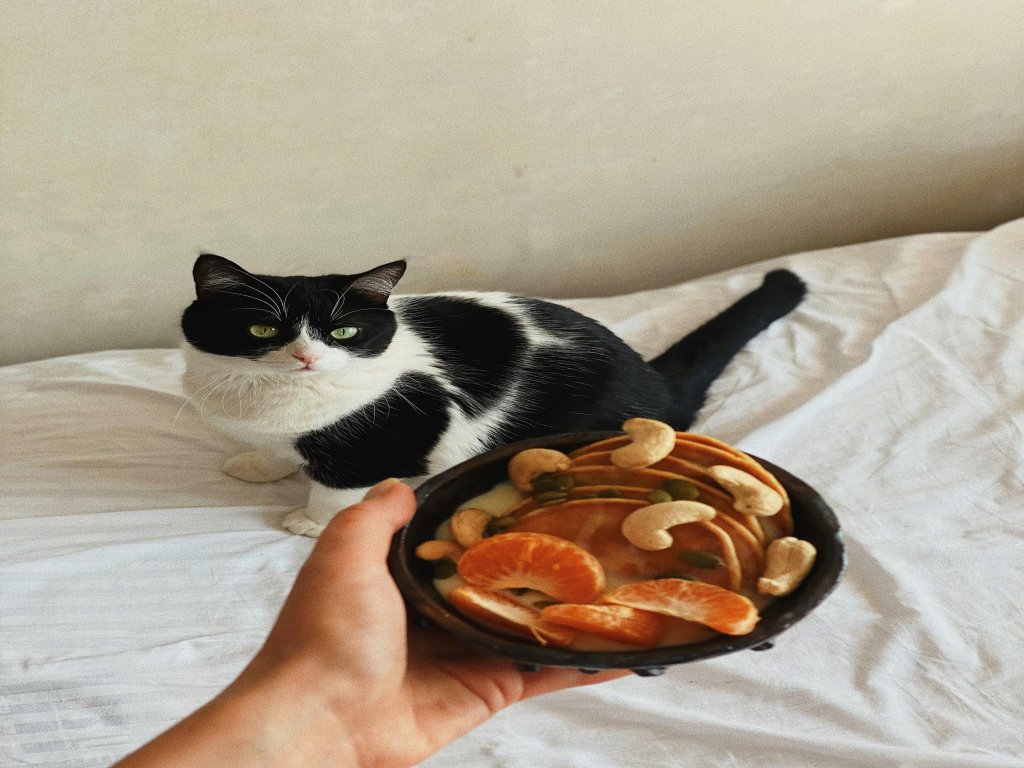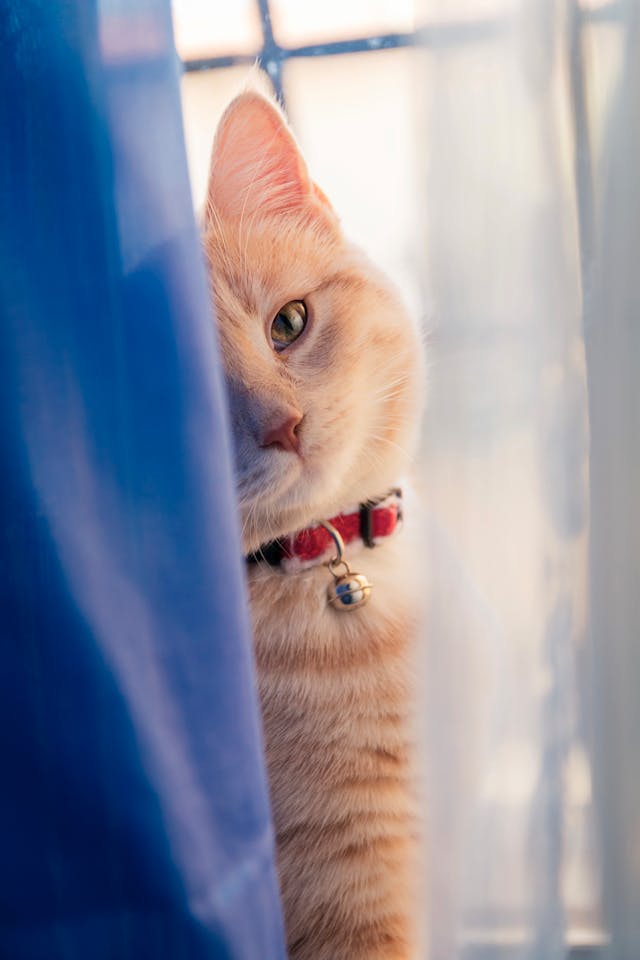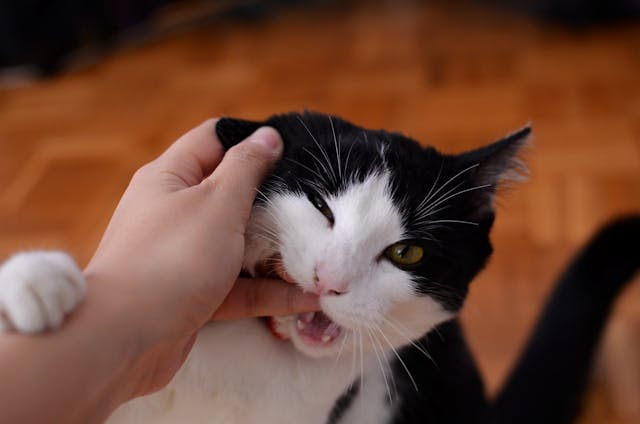Peanut butter is a beloved snack for many people, but when it comes to our feline companions, it’s crucial to consider whether it’s safe for them. Understanding the implications of feeding peanut butter to cats involves examining their unique dietary needs and potential health risks. This guide will explore whether peanut butter is safe for cats, suggest healthier alternatives, and provide tips for maintaining a balanced diet for your furry friend.
Table of Contents
Understanding Feline Nutrition
To determine if peanut butter is suitable for cats, we must first understand their nutritional requirements. Unlike humans and many other animals, cats are strict carnivores, meaning their diet must be primarily composed of meat to meet their nutritional needs. Their bodies are specifically designed to excel on a diet that is predominantly composed of animal-based proteins. Their nutritional needs focus on high levels of proteins and fats from animal products.
Certainly! Here’s a refined version of that line:
Cats thrive on a diet high in protein and fat, with very low carbohydrate content. Their digestive systems are not designed to handle high-sugar, high-fat, or salty foods. It’s crucial to consider whether peanut butter fits into their diet.
Is Peanut Butter Safe for Cats?
Peanut butter is made from ground peanuts and typically includes fats, proteins, and sugars. While not inherently toxic, several factors should be considered
Certainly! Here’s a shorter version :
High-Fat Content: Peanut butter is rich in fat, which can contribute to obesity and digestive issues in cats if consumed in excess. Excessive fat intake may also increase the risk of pancreatitis. Too much fat can also cause pancreatitis, an inflammatory condition of the pancreas.
Sugar and Salt: Many peanut butter contain added sugars and salts, which can be harmful to cats, potentially leading to health issues like diabetes and hypertension. which can be harmful to cats, potentially leading to health issues like diabetes and hypertension. These ingredients can contribute to health issues such as diabetes, high blood pressure, and obesity. Cats do not need added sugars or salt in their diet, and these can lead to significant health concerns.
Xylitol: Some peanut butter include xylitol, a sugar substitute that is highly toxic to cats. Even small amounts can cause severe reactions, including hypoglycemia (low blood sugar), seizures, and liver damage. Check ingredient labels carefully to avoid this harmful additive.
Allergic Reactions: Some cats might be allergic to peanuts or other ingredients in peanut butter. Allergic reactions could include itching, swelling, vomiting, or diarrhoea. If your cat shows any signs of an allergic reaction, stop giving them peanut butter and consult your veterinarian.

The Verdict: Can Cats Eat Peanut Butter?
In moderation, plain peanut butter without harmful additives is not considered toxic to cats. However, it’s not an ideal treat and should not be a regular part of their diet. The risks of high-fat content, sugars, salts, and potential allergens outweigh any benefits.
If you choose to give your cat peanut butter, ensure it is free of sugars, salts, and xylitol. Offer only a tiny amount and monitor your cat for any adverse reactions. Consult your veterinarian if necessary.
Healthier Alternatives to Peanut butter instead of peanut butter
consider these healthier treats for your cat:
Catnip: Catnip is a natural herb that many cats find stimulating and enjoyable. Catnip offers a natural, stimulating experience for cats, enhancing their playfulness and providing mental enrichment.
Cooked Meat: Small pieces of cooked chicken, turkey, or fish are great treats. Ensure the meat is cooked plain, with no added seasonings or sauces.
Commercial Cat Treats: High-quality commercial cat treats are formulated to meet feline dietary needs. Look for treats with high protein content and minimal
fillers.
Cat Grass: Many cats enjoy nibbling on cat grass, which aids digestion and helps reduce hairballs.
Cat-Specific Chews and Toys: Various chew toys and treats promote dental health and provide mental stimulation. Tips for Maintaining a Balanced Diet: Maintaining a balanced diet for your cat involves more than just choosing the right treats.
Here are some tips to ensure your cat’s overall diet is healthy:
Choose High-Quality Cat Food: Provide your cat with high-quality commercial cat food that meets their nutritional needs. Look for foods with high protein content and appropriate levels of fats and carbohydrates.
Avoid Human Foods: Avoid feeding your cat human foods that are high in fats, sugars, or salts. Certainly! Here’s a more concise version. Many human foods can be harmful to cats due to their different metabolic processes and dietary needs. Ingredients like excessive fats, sugars, and salts can lead to health issues such as obesity, diabetes, and digestive problems. Some human foods, including chocolate, onions, and certain sweeteners, are toxic to cats and can cause severe health issues. To ensure your cat’s health, it’s best to avoid giving them human food altogether.
Consult Your Veterinarian: Routine veterinary visits are crucial for tracking your cat’s health and ensuring their dietary needs are met. Your veterinarian can provide personalized recommendations and fine-tune your cat’s diet to ensure optimal health. Your vet can provide guidance on appropriate treats and dietary adjustments.
Monitor Portion Sizes: Treats should be given in moderation and should not make up more than 10% of your cat’s daily calorie intake. Certainly! Excessive treat consumption can contribute to weight gain and various health problems.
Stay Informed: Keep informed about feline nutrition and the latest recommendations for maintaining your cat’s health. There are many resources available to help you make the best choices for your pet.
Conclusion
While sharing peanut butter with your cat might be tempting, it’s important to consider the potential health risks. Peanut butter is not an ideal treat for cats due to its high fat content, sugars, salts, and potential allergens. Opt for healthier alternatives that better suit your cat’s dietary needs and preferences. Always prioritize your cat’s health and consult your veterinarian before introducing new foods into their diet.
For more information on pet nutrition and safe treats, check out this article on PetMD: PetMD.
Can Cats Eat Peanut Butter?




Pingback: Calico Cats: The Science, the Myths, and the Magic Behind Their Beauty - Octopet